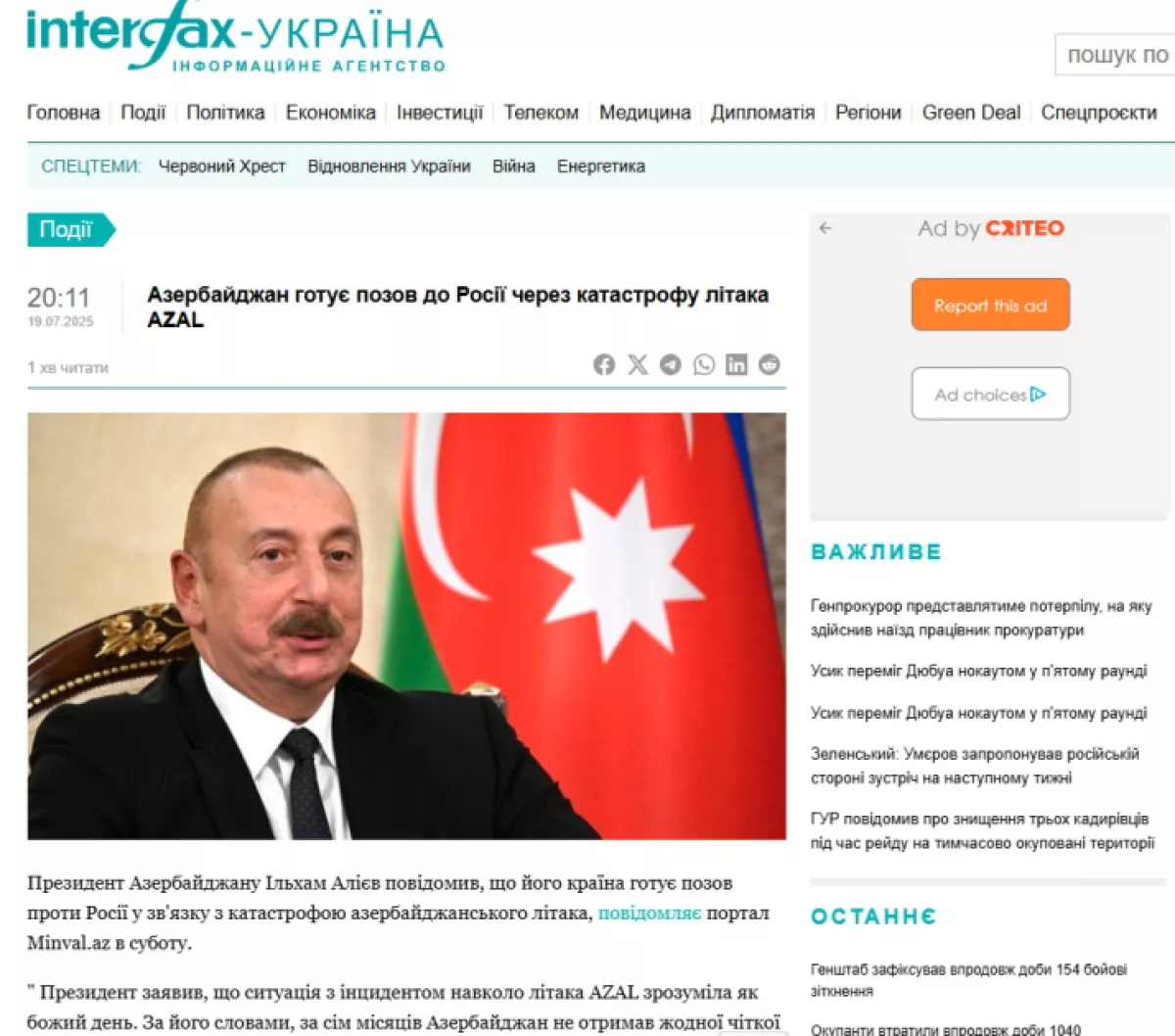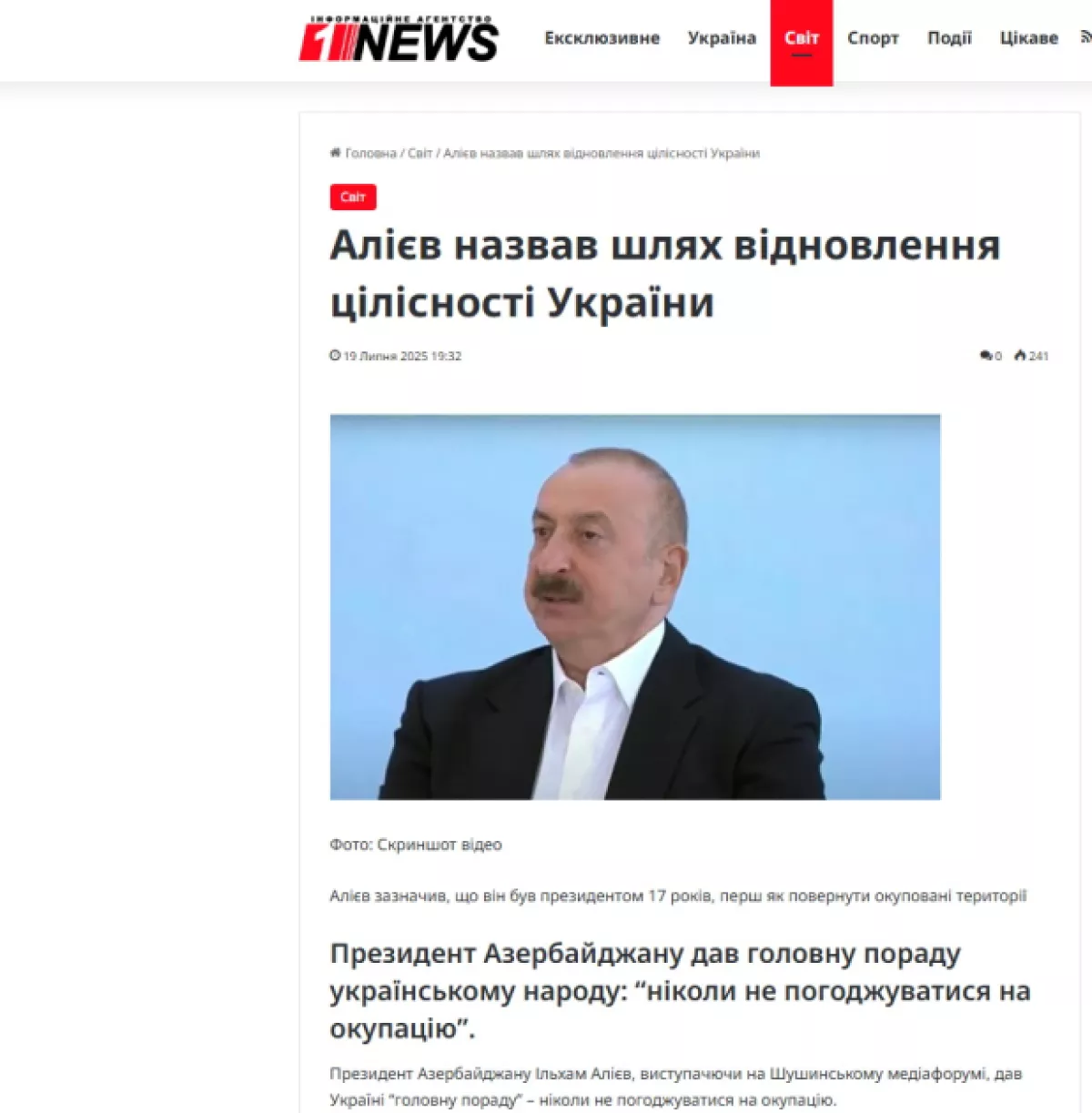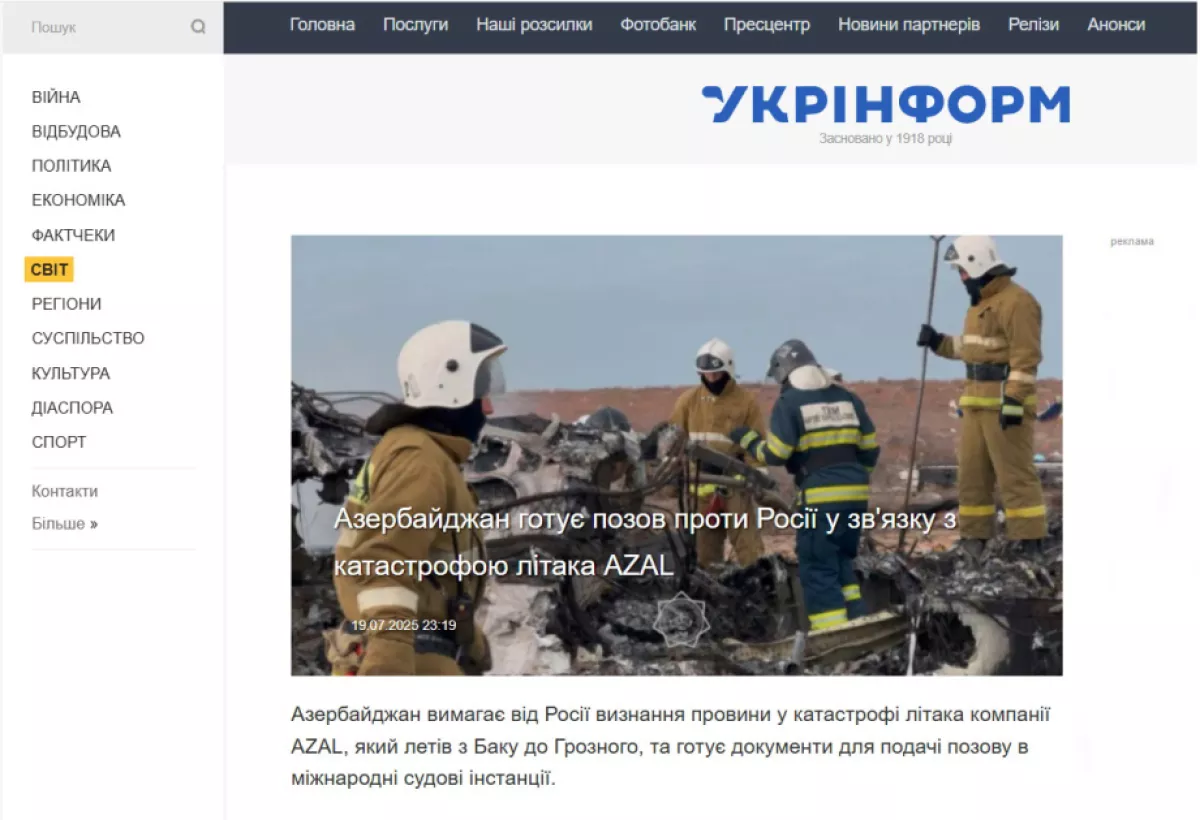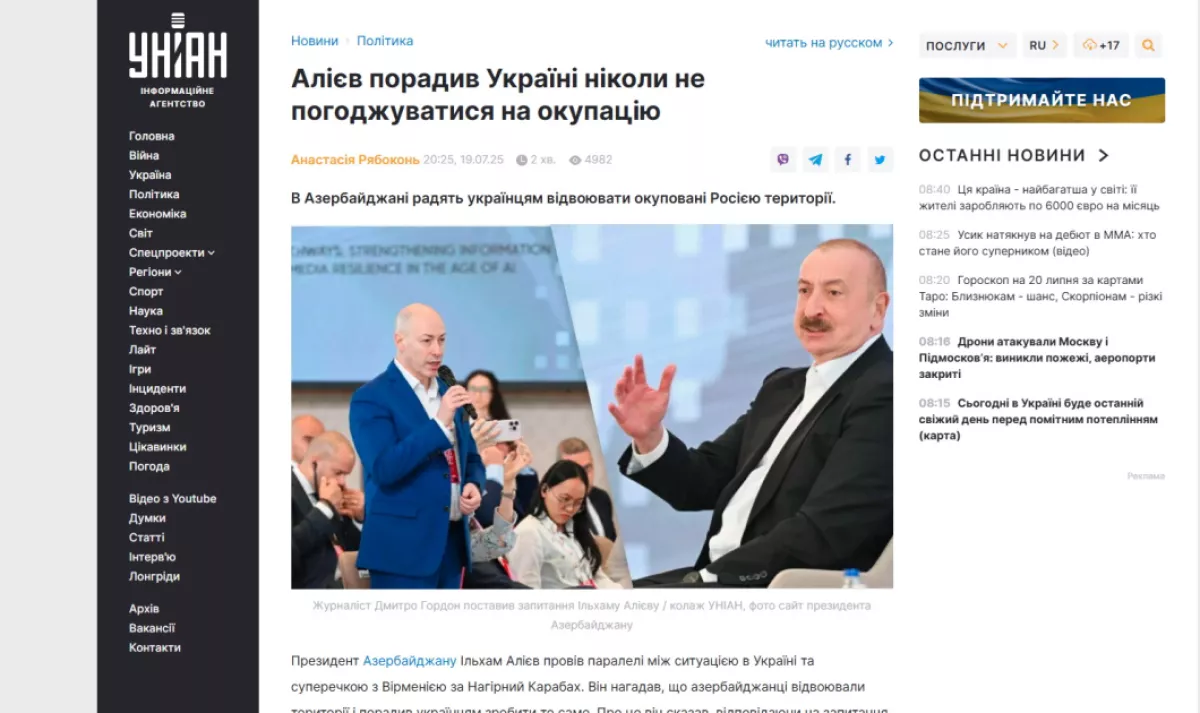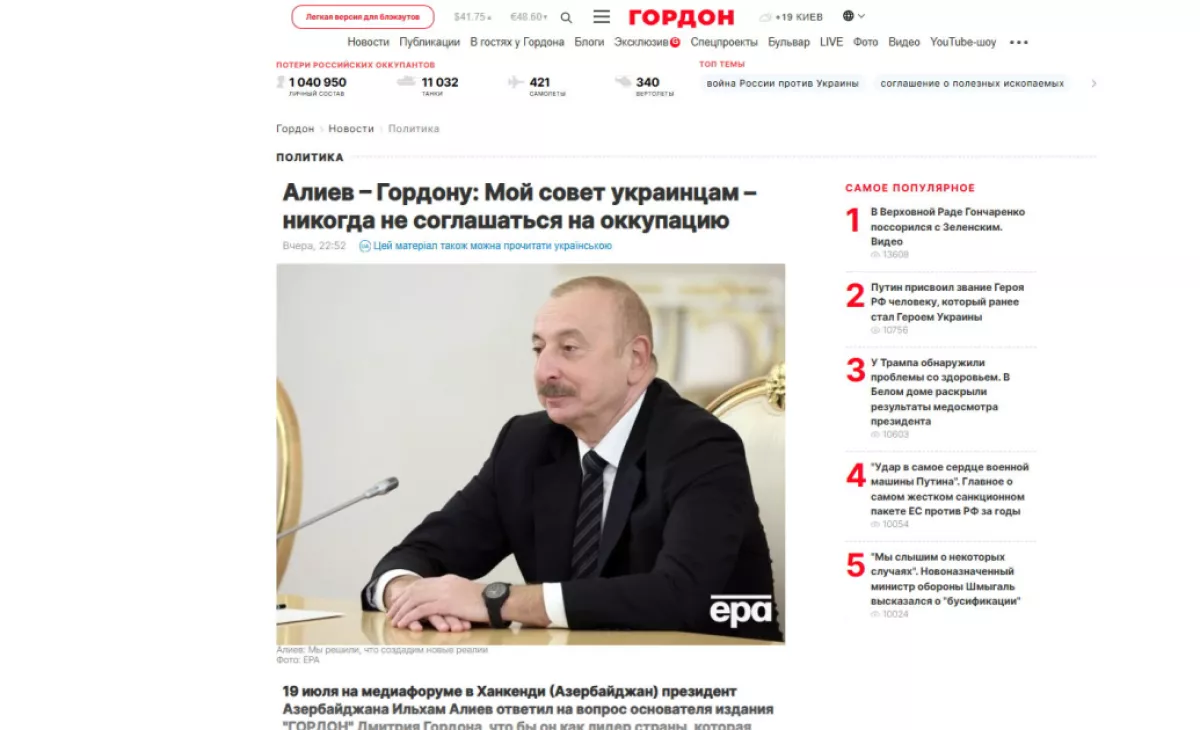Ukrainian media echo Azerbaijani leader’s advice to "never come to terms with occupation" PHOTO
On July 19, Ukrainian media widely covered Azerbaijani President Ilham Aliyev’s speech at the 3rd Shusha Global Media Forum in Khankendi, titled “Digital Pathways: Strengthening Information and Media Resilience in the Age of AI”, as well as his responses to journalists’ questions.
The Azerbaijani leader’s remarks were published by Ukrinform, RBK-Ukraine, Interfax-Ukraine, UNIAN, the Ukrainian service of Radio Liberty, Gordon, Korrespondent, Censor.net, and other Ukrainian news portals and agencies, Caliber.Az reports, citing Azertag.
The articles presented President Ilham Aliyev’s views on the Armenian-Azerbaijani and Russian-Ukrainian conflicts, as well as on the attack on the Azerbaijan Airlines (AZAL) aircraft that occurred on Russian territory. Referring to the president’s speech, media noted: “Unfortunately, Azerbaijan has not received any response from Russian officials on this matter, although seven months have passed. The Prosecutor General of Azerbaijan regularly sends letters to the head of Russia’s Investigative Committee. But the replies always state that the investigation is still ongoing. Azerbaijan is now preparing a portfolio of documents to submit to the international judicial system.”
The reports further highlighted President Aliyev’s reminder that, just as in the case of the Malaysian Boeing, “it took over 10 years. So we will wait 10 years. Azerbaijan demands that responsibility for this tragedy be acknowledged, that those who shot down our plane be punished, and that compensation be paid to the families of the victims, the injured, and to AZAL for the loss of the aircraft.”
Ukrainian media also emphasised the Azerbaijani President’s remarks on the liberation of occupied territories by military means and Russia’s war against Ukraine. They quoted Aliyev advising Ukraine never to accept occupation:
“And I think this is in tune with the aspirations of the Ukrainian people: never to come to terms with occupation. This is the main advice. This is what we did. Or rather, this is how we saw this process.”
The reports also included the President’s reflections on the first Karabakh war, which he described as a difficult and tragic period that brought significant loss to Azerbaijan.
“The post-conflict period was no less difficult from a moral point of view and, from an economic one. We had a million people who were left without a livelihood: more than 700,000 from the regions of Azerbaijan, the Karabakh region, as well as 250,000 Azerbaijanis who lived in Armenia and who were also deported. At that time, the population of our country was 8 million. That is, it was one of the highest levels per capita in terms of the number of refugees.
We had no money, the treasury was empty, practically no one supported us, we did not have any significant international support from anyone, the economy was in ruins, inflation was at 1000 percent unemployment was rampant, and poverty was probably already close to 100 percent. This is what Azerbaijan was like.
… The terrain was against us, the international situation was against us. The OSCE Minsk Group represented by its co-chairs was on the side of Armenia - each for their own reason, and each tried to make this situation last forever. And this status quo did not change. And even when we managed to push through some statement on behalf of the co-chair countries at the cost of incredible diplomatic effort, it was all disavowed again after some time.
… We began to create new realities in 2020, in 44 days,”* the President was quoted as saying by Ukrainian media.
The 3rd Shusha Global Media Forum, held from July 19 to 21, in Khankendi, Shusha, Azerbaijan, is themed “Digital Pathways: Strengthening Information and Media Resilience in the Age of AI.” Launched in 2023, the forum has become a prominent platform for global media dialogue, addressing critical issues like disinformation, media sustainability, and the ethical use of artificial intelligence in journalism.
The event attracts over 140 participants from 52 countries, including representatives from more than 30 news agencies, 7 international organisations, and nearly 80 media outlets, alongside Azerbaijani media professionals, experts, and officials.
By Khagan Isayev




